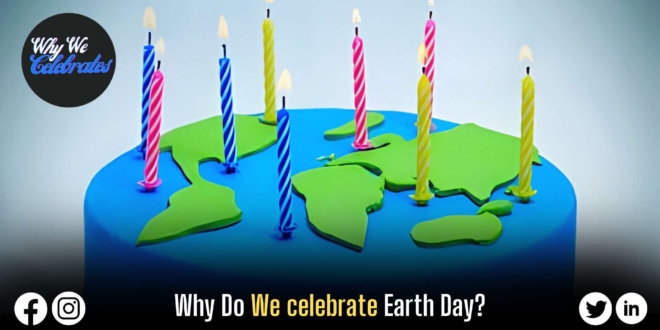Earth Day, observed annually on April 22, is a global celebration that brings people together to honor the achievements of the environmental movement and raise awareness about the urgent need to protect our planet’s natural resources for future generations. In this article, we delve into the history of Earth Day, its significance, and how each of us can contribute to safeguarding our beautiful blue planet.
The Origins of Earth Day
The roots of Earth Day trace back to the early 1970s. Prior to this pivotal moment, environmental concerns were often overlooked, and pollution was considered an inevitable side effect of progress. However, several key events paved the way for change:
- Rachel Carson’s Silent Spring: In 1962, biologist and author Rachel Carson published “Silent Spring,” a groundbreaking book that highlighted the devastating impact of pesticides on the environment and human health. The book sparked widespread awareness and concern.
- Senator Gaylord Nelson’s Vision: Inspired by the growing environmental consciousness, Senator Gaylord Nelson of Wisconsin envisioned a nationwide teach-in to raise awareness about air and water pollution. He wanted to harness the energy of student protests and channel it toward environmental causes.
- The First Earth Day: On April 22, 1970, Earth Day was born. Twenty million Americans—equivalent to 10% of the total population at the time—participated in demonstrations, rallies, and educational events. Their collective voice demanded action against the harmful effects of industrial development.
Earth Day’s Impact
The inaugural Earth Day had a profound impact:
- Legislation: Earth Day galvanized support for crucial environmental legislation, including the Clean Air Act (updated in 1970) and the Endangered Species Act (1973).
- Global Movement: Earth Day transcended borders, spreading to more than 140 countries with over 200 million participants. It became a platform to address pressing issues like global warming and renewable energy.
How Can You Celebrate Earth Day?
As a responsible global citizen, here are practical steps you can take:
- BECOME A WASTE WARRIOR: Reduce, reuse, and recycle. Minimize your ecological footprint by making conscious choices.
- PLANT A TREE: Trees absorb carbon dioxide and provide essential oxygen. Participate in tree-planting initiatives.
- TURN OFF THE LIGHTS: Conserve energy by switching off lights when not needed.
- LIMIT YOUR WATER USAGE: Be mindful of water consumption. Fix leaks promptly and use water-saving appliances.
- OFFER YOUR TIME: Volunteer for environmental organizations or participate in community clean-up drives.
- SPREAD THE MESSAGE: Educate others about environmental issues. Awareness leads to action.
- BE A PLANET HERO!: Every small effort counts. Whether it’s picking up litter or supporting eco-friendly businesses, you can make a difference.
- Learn About Environmental Issues: Get informed on threats like climate change or pollution by attending community teach-ins, webinars, panels, and conferences organized for Earth Day. Discuss solutions and stay motivated!
- Make Sustainable Changes: Adopt eco habits like biking instead of driving, switching to clean energy, eating less meat or planting a pollinator garden. Small daily choices protect nature when multiplied by 7 billion people.
- Organize or Join a Local Clean Up: Gather friends, family or coworkers to beautify your neighborhood by picking up litter in local parks, beaches and public spaces that need some TLC.
- Spread Awareness Online: Post about environmental events on social media using hashtags like #EarthDay or #saveEarth to educate your networks. Share why you care about nature or pledge ways you’ll reduce your footprint this year.
Since 1970, Earth Day continues to unite citizens worldwide around the common goal of environmental protection. It began in the U.S. but has since blossomed into a global celebration with over a billion participants across more than 190 countries.
By raising awareness, inspiring action, and promoting civic participation around core ecological issues, Earth Day builds the public involvement needed to drive positive legislative and lifestyle changes. Small steps by many individuals on issues from climate change to waste add up to make a real collective impact.
This Earth Day on April 22nd, make your voice heard and help take care of the planet we all call home. Our future depends on it!
FAQS
How Is Earth Day Celebrated Around the World?
Earth Day is observed on April 22 in the United States, but its celebration varies worldwide.
Activities include cleanups, tree planting, education programs, and advocacy for renewable energy.
When Was the First Earth Day Celebrated, and Who Founded It?
The inaugural Earth Day occurred on April 22, 1970, thanks to Senator Gaylord Nelson’s vision.
It united millions of Americans in advocating for environmental conservation.
How Many Countries Celebrate Earth Day?
Earth Day is celebrated in over 193 countries, emphasizing global environmental consciousness.
What Happened on the First Earth Day?
On that historic day in 1970, millions rallied, voicing concerns about pollution, deforestation, and human impact on our planet.






